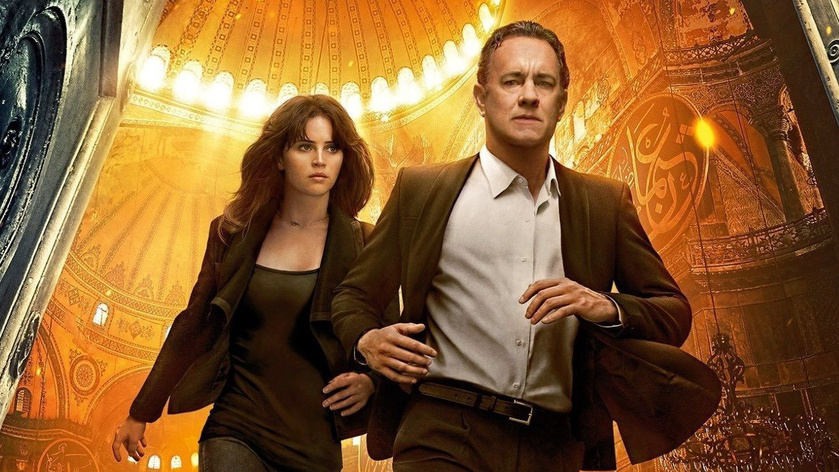Last week and over the weekend I watched Ron Howard’s Robert Langdon trilogy, based on Dan Brown’s novels. When Howard and Tom Hanks teamed up for Apollo 13 they won numerous awards and near universal acclaim. This time (all three times, actually), not so much. Then again, with Apollo 13 they had a gripping true story. For this set of movies, they had books by an author whose titles cluttered first airport racks and now Goodwill shelves.
Brief popularity doesn’t mean longevity.
Yet I watched all three in a row. How? Why? Well, the first question is easy. The movies were available on Peacock and are so segmented that I could catch a few scenes here, a few there, and not worry or care about a cinematic journey. Answering why I watched them is a little more complex. For one thing, the movies were leaving at the end of July, and nothing motivates me like a ticking clock. I’ve read The Da Vinci Code and used to have some of Brown’s other books on my shelf (I gave them away when we moved). I'd also seen the first two movies before, so I knew what to expect.
Knowing what to expect sometimes makes for a more relaxing experience.
Since I was looking for something to watch in the evenings after Mom went to bed, I didn’t want anything too bombastic. Someone noted that Robert Langdon is responsible for an entire generation of adventurers who go to the library rather than explore dangerous tombs. What’s less bombastic than a library? Even an ancient one filled with cultists?
Nothing.
Watching The Da Vinci Code, I got the feeling that I was watching a hacky religious movie for Gnostics, no better than some Christian or Mormon films for the budget or star power. In a weird inversion of how things usually go, the first movie may be the worst and the series only improves from there. The heresy on display is far older than most people realize, but I doubt it’s ever been more blatantly poured into the popular culture than it is here.
But we love watching smart people solve puzzles, so we let it slide.
Angels & Demons is of more interest to conspiracy theorists, as it touches on two of their favorite topics: CERN and the Catholic Church. Once again, religious people take a hit. But it’s a glancing blow. Brown is clearly not a fan of organized religion, but even he has to admit there are some good people doing good things through it. At its core, the movie is basically the same. This time there’s greater emphasis on the ticking clock, but it’s all the same puzzles, teamups, and betrayals.
But we love watching smart people solve puzzles, so we let it slide.
The final movie, Inferno, is a little different in that the cultists are climate extremists. It’s made very clear that saving the planet is their religion, and they’re the bad guys. Kinda makes you wonder if it would even get made today. Brown and Howard try to breathe new life into the formula in other ways, but really, if you’ve seen one you’ve seen them all. The ticking clock is even more prominent. The female sidekick is younger and prettier. The main antagonist is already dead. And yet, I was never gripped with suspense.
But I love watching smart people solve puzzles, so I let it slide.
As I worked my way through the trilogy, I often thought how much Howard was straining to chanel Hitchock, especially in the final installment. Langdon is an everyman, and in Inferno he has less of an idea what’s going on than in the others. Like Cary Grant in North by Northwest, Langdon is always on the run trying to stop something with major implications. Unfortunately, Opie lacks the Master’s touch, and our old Bosom Buddy is more frumpy than suave.
Hitchcock also took popular novels that are now mostly forgotten and made great films out them. Not everyone can do that. Clearly.
Aside from the puzzles and the sense that I was learning something (even if it was heresies, myth, and bad readings of history), I stuck it out because of the locations. The movies are trash, but even they can’t take away the awe and grandeur of the European cities. I may never go to those places, and travel documentaries are fine, but wrapping them in a story, no matter how bad, creates a greater experience for me. Will I watch the movies again? Perhaps. But I have no interest in the books, because it’s all about the visuals, which are timeless, beautiful, and true.

























